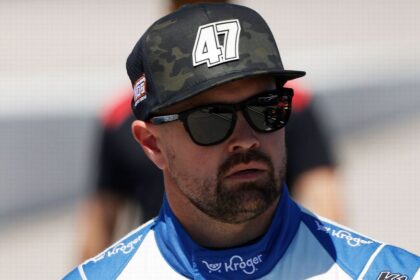NASCAR and Teams Return to Court After Failed Mediations
CHARLOTTE, N.C. – NASCAR and two of its teams returned to court on Thursday, after two failed days of mediation, resuming their bitter antitrust fight with a hearing that included team owner Michael Jordan laughing incredulously at some testimony, as the two sides move closer to a trial.The lawsuit was filed a year ago by 23XI Racing, co-owned by Jordan and three-time Daytona 500 winner Denny Hamlin, and Front Row Racing, owned by Bob Jenkins. They are the only two organizations out of the 15 that refused to sign extensions for new charter agreements after more than two years of negotiations. Charters are the core of NASCAR’s business model, guaranteeing income and access to weekly races, and without them, both teams say they will surely go bankrupt. Other teams have requested an agreement to clarify the situation and move the stock car series forward, but three mediation sessions have apparently been unsuccessful and the hearing revealed how distanced they are. The trial is scheduled for December 1st. U.S. District Judge Kenneth Bell and Jeffrey Mishkin, former executive vice president and general counsel of the NBA, participated in mediation on Monday and Tuesday, with Bell opening the session by thanking both parties for working in good faith during the sessions. NASCAR wants Bell to dismiss the lawsuit and the hearing focused on the series’ proposal to reduce the scope of the damages that the two teams say they are owed. NASCAR accused 23XI and FRM of manipulating other teams and behaving with “classic cartel behavior, ultimately because they received less than they would have received” under the statute extensions signed late last year. It struggled to defend those arguments on Thursday. NASCAR repeatedly insisted that teams are free to compete in both IndyCar and F1, without revealing that entry into F1 is nearly impossible and that IndyCar’s finances simply don’t come close to the value of competing in the stock car series. Kessler compared NASCAR’s move to IndyCar to a Major League Baseball team moving to the minor leagues.“Today’s hearing confirmed the facts of NASCAR’s monopolistic practices and showed NASCAR for what they are: vindictive bullies who prefer to focus on personal attacks and distract from the facts,” said Jeffrey Kessler, who represents the two teams. “My clients have never been more united and committed to ensuring a fair and competitive sport for all teams, partners, drivers, and fans. We are going to trial to hold NASCAR accountable.”
Jeffrey Kessler
NASCAR also mischaracterized the sale of Chip Ganassi Racing’s NASCAR team to Trackhouse Racing before the 2021 season as an opportunity for Ganassi, whose name was repeatedly mispronounced by NASCAR attorney Christopher Yates, to reinvest in IndyCar and expand that program to four cars. Ganassi has long run three to four cars in IndyCar and for more than three decades has been considered one of the top two IndyCar teams. Jordan laughed and smiled several times at NASCAR’s claims, and at one point, Hamlin and Jenkins vehemently shook their heads at NASCAR’s claim that it pays its teams a higher percentage of revenue than F1 does to its teams. Jordan did not speak to reporters afterward. The original statutes lasted from 2016 to 2020 and were automatically renewed to continue until December 31, 2024. NASCAR maintains that they have added more than $1 billion in capital for their teams, but the owners have pushed for changes. 23XI and FRM initially won a preliminary injunction to be recognized as teams with charters this season while the case played out, but that was overturned and the combined six cars have competed as “open” teams as the season nears its end on November 2nd. Kessler argued that the damages in the case should date from the 2021 season due to 28 exclusion elements that, according to him, prevent NASCAR teams from competing in any motorsport series that closely resembles their version of stock car racing. NASCAR conceded that there was at least one exclusion element in that charter agreement that began in 2021. Bell was scheduled to hear testimony from expert witnesses, but he scheduled two court dates in November, two weeks after Hamlin competes for the Cup Series title outside of Phoenix.“The experts found that the prize money and television audiences (of IndyCar) were too low to make them a minor league team,” Kessler argued. “Michael Jordan, if they put a gun to your head and tell you that you have to join IndyCar, you better hope it’s a pretty big gun.”
Jeffrey Kessler








